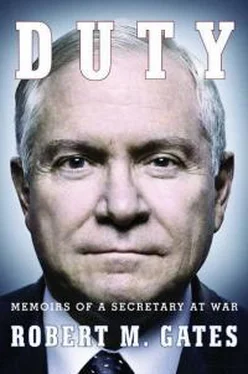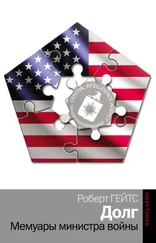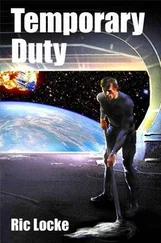Fifty-eight days after I first spoke with Steve Hadley, I was the secretary of defense charged with fighting two wars and the leader of the finest military in the history of the world. In my remarks, I said that I would travel soon to Iraq to meet with our commanders to seek their advice—“unvarnished and straight from the shoulder”—on how to proceed in the weeks and months ahead. I also noted that progress in Afghanistan was at risk and that we intended to keep our commitment there. Returning to the theme I had expressed at my confirmation hearing, I said,
How we face these and other challenges in the region over the next two years will determine whether Iraq, Afghanistan, and other nations at a crossroads will pursue paths of gradual progress toward sustainable governments, which are allies in the global war on terrorism, or whether the forces of extremism and chaos will become ascendant. All of us want to find a way to bring America’s sons and daughters home again. But as the president has made clear, we simply cannot afford to fail in the Middle East. Failure in Iraq at this juncture would be a calamity that would haunt our nation, impair our credibility, and endanger America for decades to come.
A mirthful note was added many hours later. In my remarks at the swearing-in, I had said that my ninety-three-year-old mother was present for the ceremony. Comedian Conan O’Brien picked up on that on his show that night. He joked that my mother had come up to me after the ceremony, offered her congratulations, and then told me, “Now, go kick the Kaiser’s ass.”
CHAPTER 2
Iraq, Iraq, and Iraq
My highest priority as secretary was to turn the situation around in Iraq. Political commentators before and after my confirmation were virtually unanimous in saying that my tenure as secretary would be judged almost entirely by what happened there, a rather daunting challenge given the rising tide of violence and the deterioration of the security situation, dysfunctional Iraqi politics, and the obvious failure of American military strategy there by mid-December 2006.
The United States was engaged in two major wars every single day I was secretary of defense for four and a half years. I participated in the development of our strategies both within the Pentagon and in the White House, and then had primary responsibility for implementing them: for selecting, promoting—and when necessary, firing—field commanders and other military leaders; for getting the commanders and troops the equipment they needed to be successful; for taking care of our troops and their families; and for sustaining sufficient political support in Congress to provide time for success. I had to navigate the minefields of politics, policy, and operational warfare, both in the field and in Washington. The military battlefields were in Iraq and Afghanistan; the political battlefields were in Washington, Baghdad, and Kabul. I was, next to the president, primarily responsible for all of them.
I did not come to the Iraqi battlefield as a stranger.
THE GULF WAR
I was one of a small group of senior officials in Bush 41’s administration who were deeply involved in planning the Gulf War in 1991. At its conclusion, I believed that we had made a strategic mistake in not forcing Saddam personally to surrender to our generals (rather than sending an underling), in not making him take personal responsibility and suffer personal humiliation, and maybe even in not arresting him at the surrender site. On February 15, 1991, Bush, as he wrote in his memoir, had ad-libbed at a press conference that one way for the bloodshed in Iraq to end was “to have the Iraqi people and military put aside Saddam.” The entire Bush team was convinced that the magnitude of their defeat would prompt the Iraqi military leaders to overthrow Saddam.
To our dismay, almost immediately after our military offensive ended, both the Shia in the south and the Kurds in the north spontaneously rose up against Saddam. They had interpreted the president’s words—aimed at the Iraqi military—as encouragement of a popular uprising. We should have been more precise in saying what we were after, even though I don’t think it would have forestalled the uprisings. We were criticized widely for allowing the regime to continue to use their helicopters to put down the uprisings (the Iraqis said they were needed because we had destroyed most of their highway bridges), although it was Iraqi army ground forces and armor that brutally ended the rebellions. Meanwhile Saddam used the time provided by those uprisings and their suppression to murder hundreds of his generals who might have done the same to him. Neither the Kurds nor the Shia—especially the latter—would forgive us for not coming to their assistance after they thought we had encouraged them to take up arms.
Another lingering criticism was that Bush 41 had not sent our military on to Baghdad to force regime change. Our view was that such action was not sanctioned by the UN Security Council resolutions on the basis of which we had constructed a broad coalition, including Arab forces. Thus the coalition would have shattered had we gone on to Baghdad. While that might not have mattered in the short term, by breaking our word then, we would have had an awful time trying to assemble another such coalition to deal with an international problem. Further, I made the point many times that Saddam was not just going to sit on his veranda and let U.S. forces drive up and arrest him. He would have gone to ground, and we would have had to occupy a significant part of Iraq in order to find him and/or defeat a determined and ruthless resistance movement that he almost certainly would have put together, with home field advantage.
So the war ended in February 1991 with Saddam still in power, Iraq under severe international sanctions limiting imports and controlling the export of Iraqi oil, and the Shia and Kurds even more brutally repressed. In the ensuing years, Saddam did everything possible to evade the sanctions, diverting proceeds from the “oil-for-food” program (under which the Iraqi regime was allowed to sell just enough oil to buy food and medicine) into his own pocket and overseeing a vast operation smuggling oil across the border into Iran for sale. He used a lot of that money to build dozens more gigantic, tasteless palaces that we would later occupy.
None of us doubted in the early 1990s that, just as soon as he could, Saddam would resume the programs he had had under way before the war to develop biological, chemical, and nuclear weapons. The intensive inspections program instituted after the war uncovered evidence that the Iraqis had, in fact, been considerably further along in developing nuclear weapons than U.S. intelligence had estimated before the war. We were so confident he had deployed chemical weapons that our first troops to cross the border wore chemical protection suits (which were unbearably hot and uncomfortable even in February). As long as the inspections effort continued and the sanctions were strictly enforced, his opportunities to resume the programs for weapons of mass destruction would be very limited.
But as the years went by, Saddam became much more aggressive in limiting the reach of the inspectors, and the inspections for all practical purposes ended in 1998. Adherence to the sanctions also gradually weakened as a number of governments—France, Russia, Germany, and China, among others—angled for oil contracts and other business opportunities with the Iraqis. By 2003, most governments and intelligence services had concluded that Saddam had been successful in resuming his weapons programs. That view was reinforced by his boasting and his behavior, intended to persuade his own people—and his neighbors—of that success. The result was unanimous adoption in the fall of 2002 of UN Security Council Resolution 1441, which demanded a full accounting of progress in Iraq’s weapons programs and a rigorous international inspection effort. Serious consequences were threatened for noncompliance. Saddam nonetheless continued to play games with the inspectors and the international community. As Condi Rice would write years later, “The fact is, we invaded Iraq because we believed we had run out of other options. The sanctions were not working, the inspections were unsatisfactory, and we could not get Saddam to leave by other means.” Particularly later, as the war dragged on, fewer and fewer people accepted that logic.
Читать дальше












